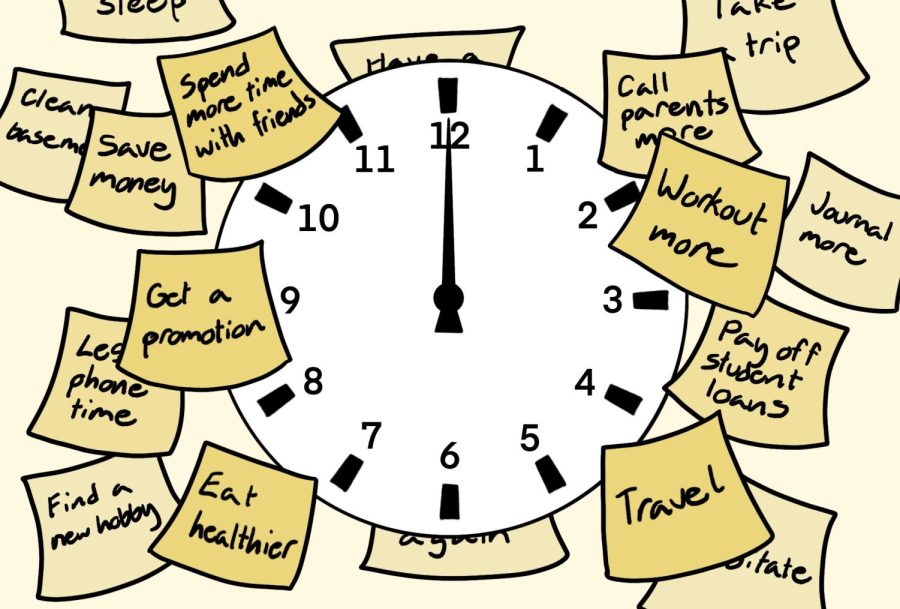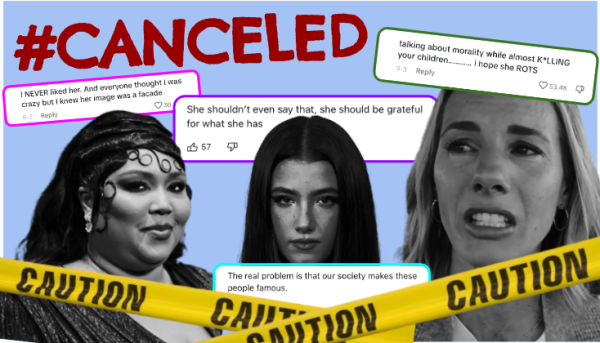New Year, New Me! Are New Year’s resolutions pointless?
People often lose track of their New Year’s resolutions because they create so many.
January 11, 2023
The clock strikes midnight, the ball drops and people around the room cheer and celebrate the beginning of yet another year.
A huge part of any New Year’s celebration are New Year’s resolutions. New Year’s resolutions are goals people will set for themselves right at the start of the year.
However, participation has dwindled over the years because people have begun to see that it is a pointless tradition. Despite the many people who still participate in New Year’s resolutions, very few will actually keep their goals.
According to a survey by Statista, “Only four percent of people who made New Year’s resolutions in 2018 said they kept them.”
What ultimately happens is many people will set some crazy goals and keep them for about a week before giving up.
According to PBSNC, “A landmark 1988 study out of the University of Scranton found that while 77 percent of people who committed to a New Year’s resolution stuck to it for a week, only 19 percent of those who made resolutions kept them two years later.”
New Year’s resolutions are pointless. The start of a new year gives people a burst of motivation to accomplish their goals, but it is generally short-lived.
Just like many other people, Linganore freshman Arwen Flint had some controversial opinions about the effectiveness of New Year’s Resolutions.
“You should have the will to better yourself without having to make it part of a tradition or holiday. If I make goals for myself during the entire year, why should I make them specifically at the start of the year?” said Flint.
The only reason that the new year is associated with making goals and trying to better yourself is because a beginning, such as the beginning of a year, is considered a ”fresh start.” In reality, however, nothing is different from one day to the next, between December 31 and January 1. Time keeps moving forward, and everyone is still the same person they were a day before. Not that much can change overnight.
According to Economic Times, “Most people blame their failure to fulfill resolutions on a lack of time, resources or motivation, or a loss of zeal after starting.”
By the end of the month of January, fewer people are still trying to reach the goals they set for themselves only a couple weeks previously.
“I feel like New Year’s Resolutions, as a whole, are just a bunch of unrealistic goals that people will set for themselves because they want a fresh start,” said freshman Lauren Cumberledge.
The most common New Year’s resolution is losing weight or setting exercise goals. However, when most people make these goals, they fail to realize the amount of maintained effort they must put in to reach their goal. This is why the majority of people will start their resolutions off strongly but then slowly give up by the end of January.
The common saying “new year, new me” is inaccurate, because even though the year changed, it is still just another day in someone’s life. What can truly change about a person overnight? How can they possibly make a drastic personal change in a few short hours?
Linganore freshman Anabelle Ondrik has similar views to Flint.
“New Year’s resolutions are stupid. People will do them for a week and then they just stop and go back to old habits. You are not a new person. There is no ‘new year, new me’ because everyone changes gradually over the year, and picking a specific date for getting all these new goals only sets you up for failure,” said Ondrik.
As Flint previously mentioned, the idea that true motivation would strike specifically at the beginning of the year is foolish.
People should not need a holiday to improve themselves; they should just be able to do it on their own. New Year’s resolutions are unnecessary and should not be the only time when people think about reaching personal goals.
There is no difference if someone starts working toward their goal on January 1 as opposed to June 12. It is still the same goal, still the same progress, and someone has the same chance of success if not more.
“If someone is so lazy they have to wait for a holiday to start working towards their goals, then they don’t have the work ethic to succeed with their goals. So, resolutions should not be [only] associated with New Years. People generally will just give up within a short period of time and then relive the cycle once again the next year,” said Ondrik.
New Year’s resolutions are an unnecessary part of New Year’s traditions.
The “new year, new me” mentality is harmful because it introduces the idea that the only time of the year you should make big changes in your life is right at the start of the year. People need to wake up and realize that they can make these changes at any point during the year. Holding off goals delays progress and lowers success rate.
Instead of the “new year, new me” mentality, people should adapt to a “start today, not tomorrow” mindset.












